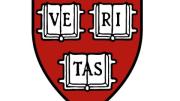University reductions in expenses are likely to offset lost revenues and the increased costs imposed by the pandemic, suggesting that Harvard may avoid an overall operating loss for the fiscal year ending June 30. In a cautiously optimistic outlook shared in the Harvard Gazette, Thomas J. Hollister, Harvard’s vice president for finance and chief financial officer, said he was hopeful that the professional schools and other units would not have to tap reserves too deeply to cover losses from operations during FY 2021.
Revenues are “substantially reduced and will be down for the second year in a row,” said Hollister. Loss of income from tuition, room and board payments, graduate student rental-housing, executive-education programs, dining and café operations, and parking and activity fees has sharply constrained revenue. But expenses during the first six months of the fiscal year, he said, were “lower than a year ago and less than we had forecast.”
Spending declined on supplies, equipment, travel, food, consultants, energy, maintenance, capital projects, and compensation. The reduction in salary and benefit-related expenses was attributable to salary and hiring freezes, together with operating economies enabled by a Voluntary Early Retirement Incentive Plan accepted by 700 eligible University staff members during the prior fiscal year. (See “The Financial Fallout…So Far” for a discussion of this $71-million accounting charge taken in fiscal year 2020, and another reflecting the reduction in the original value of the complex on which the science and engineering center in Allston was built.) Hollister noted that the University has been able to “avoid any widespread furloughs or job layoffs” as well as reductions in retirement and pension contributions due to disciplined control of expenses. Many other institutions of higher education have not been so fortunate; “650,000 jobs have been eliminated in higher education in the last 12 months,” he pointed out, citing The Chronicle of Higher Education. “This is one out of every eight jobs in higher education.”
The University accrued pandemic-related expenses, such as for testing (tens of millions of dollars’ worth) and increased financial aid, particularly for undergraduates, but these, too, were offset by lower expenses.
Hollister urged continued caution in spending, adding that the University’s relative financial strength through the pandemic was attributable in large part to a host of improved financial controls that began after the Great Recession of 2008, including increased liquidity and reserves among the schools and units, “downside scenario financial planning,” improved oversight by the Harvard Corporation, and close coordination with the Harvard Management Company, which manages the University’s endowment.
Looking ahead to next fiscal year, Hollister reported that robust stock-market returns have boosted endowment performance, allowing the Corporation to authorize a 2.5 percent increase in endowment distributions for fiscal year 2022, up from 1 percent during the prior year. Because distributions from the endowment are Harvard’s largest single source of revenue, said Hollister, “this will provide more funding for all endowed activities.”









